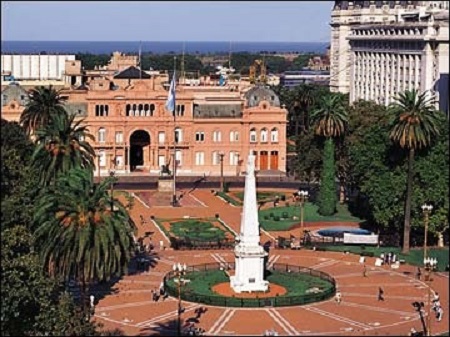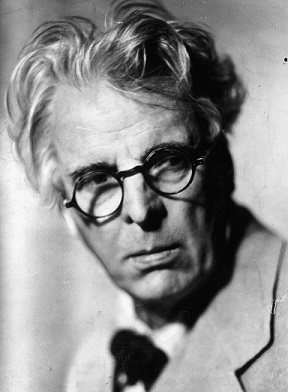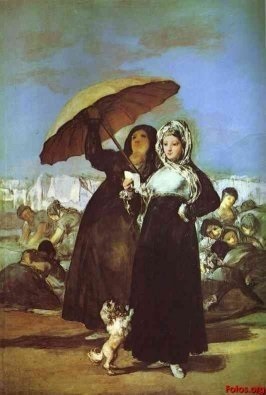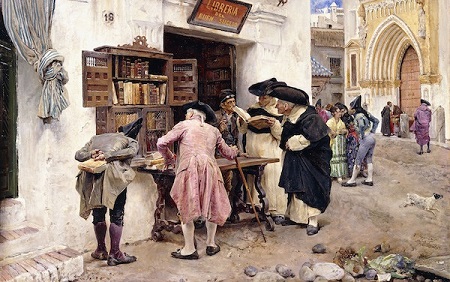Archibald John Motley, Junior (October 7, 1891, New Orleans, Louisiana – January 16, 1981, Chicago, Illinois) was an African-American visual artist. He studied painting at the School of the Art Institute of Chicago during the 1910s, graduating in 1918. He is most famous for his colorful chronicling of the African-American experience during the 1920s and 1930s, and is considered one of the major contributors to the Harlem Renaissance, or the New Negro Movement, a time in which African-American art reached new heights not just in New York but across America - its local expression is referred to as the Chicago Black Renaissance. The Renaissance marked a period of a flourishing and renewed black psyche. There was a newfound appreciation of black artistic and aesthetic culture. Consequently, many black artists felt a moral obligation to create works that would perpetuate a positive representation of black people. During this time, Alain Locke coined the idea of the “New Negro,” which was very focused on creating progressive and uplifting images of blacks within society. The synthesis of black representation and visual culture drove the basis of Motley's work as "a means of affirming racial respect and race pride.” His use of color and notable fixation on skin-tone, demonstrated his artistic portrayal of blackness as being multidimensional. Motley himself was of mixed race, and often felt unsettled about his own racial identity. Thus, his art often demonstrated the complexities and multifaceted nature of black culture and life.
|
Editor's Page Conversation in the Plaza / Conversación en la plaza 
Francisco: What's going on, Alberto? Conversación en la plaza
Francisco: ¿Qué está pasando, Alberto? Current Events
Our Man in Riyadh - Abizaid of Arabia
What does President Trump’s recent nomination of retired Army General John Abizaid to become the next U.S. ambassador to Saudi Arabia signify? Next to nothing -- and arguably quite a lot.
Abizaid’s proposed appointment is both a non-event and an opportunity not to be wasted. It means next to nothing in this sense: while once upon a time, American diplomats abroad wielded real clout -- Benjamin Franklin and John Quincy Adams offer prominent examples -- that time is long past. Should he receive Senate confirmation, Ambassador Abizaid will not actually shape U.S. policy toward Saudi Arabia. At most, he will convey policy, while keeping officials back in Washington apprised regarding conditions in the Kingdom. “Conditions” in this context will mean the opinions, attitudes, whims, and mood of one particular individual: Mohammed bin Salman. MBS, as he is known, is the Saudi crown prince and the Kingdom’s de facto absolute ruler. By no means incidentally, he is also that country’s assassin-in-chief...
Continue reading Features Scenes of Life by Stephen L. Talbott
We in the twenty-first century have inherited an extensive
library of descriptive literature about living things, their
habitats, and their mutual relations, bequeathed to us over
the centuries by dedicated naturalists. Unfortunately, in
this age of molecular biology and genetic preoccupation,
the community of naturalists has largely died out. It is a
shame that biologists today can easily pass through their
schooling and into a pristine laboratory without ever
having read descriptions such as the following, let alone
having observed and investigated these phenomena for
themselves.
The narratives below, culled from various sources, afford
only fragmentary glimpses of the larger panorama of life
on earth. But they are enough to remind us of the “miracle”
that life can so easily appear to be. The reminder is a useful
one, so far as it spurs us toward efforts of understanding
that are not cramped by prevailing dogmas.
Continue reading The Gospel of Mary Magdalene 
. . . Will matter then be destroyed or not? 22) The Savior said, All nature, all formations, all creatures exist in and with one another, and they will be resolved again into their own roots. 23) For the nature of matter is resolved into the roots of its own nature alone. 24) He who has ears to hear, let him hear. 25) Peter said to him, Since you have explained everything to us, tell us this also: What is the sin of the world? 26) The Savior said There is no sin, but it is you who make sin when you do the things that are like the nature of adultery, which is called sin. 27) That is why the Good came into your midst, to the essence of every nature in order to restore it to its root. 28) Then He continued and said, That is why you become sick and die, for you are deprived of the one who can heal you. 29) He who has a mind to understand, let him understand. 30) Matter gave birth to a passion that has no equal, which
proceeded from something contrary to nature. Then there arises a
disturbance in its whole body...
Continue Fiction The Conductor 
"But Pier Luigi, aren't you happy just being an Italian?" she said, screwing up her eyes and tilting her head to one side as she did when she was most perplexed. "What's wrong with that anyway?" Love in the Life of Spies - Chapter 9 (end) 
Marvin Jacks had bought a house in the town of Florida – emphasis on the “i” in Spanish – a suburb of Buenos Aires. He was now the International Air Transport Association’s Director of Security and Fraud Detection for the whole Western Hemisphere, but there was an Assistant Director in Miami who handled most of the North American cases, and reported to Jacks in Buenos Aires instead of directly to Head Office in Geneva. Jacks had fought tooth and nail to avoid being moved to head office, claiming he could do the job better in the field, which was certainly true. Finally it came down to a duel between him and the Finance Director, whose idea of efficiency was to move everyone to head office and let them perform their miracles with modern communications technology. Jacks finally won by getting the support of the president of the national carrier, Argentine Airlines, a general who owed him a favor. That particular officer is still in jail for human rights abuses, so it wouldn’t be politic to mention his name or the favor here. The Director General of IATA personally overruled the Finance Director, whom he hated, after receiving a telephone call from the general, during which he, the general, said Marvin Jacks’ continued presence in Buenos Aires was essential to the survival of the airline industry – or words to that effect. Argentine generals are known to exaggerate...
Miryam - Part Twelve (end) 
We left early in the morning. Such a beautiful morning, and spring, and Yeshua’s words in my ear: Go to Galilee, I will be there. But of course always the doubt: it can’t be true that someone returns from the realm of the dead, it can’t be true that you can see and touch him, that doesn’t happen, we have fooled ourselves, over-stimulated as we were we imagined something for consolation.
But why then my happiness? Where does the feeling come from that HE is near to me? Children's Corner The Talking Trees 
Nicolás lives in a small town in the north of the country. The house he lives in is on the outskirts of the town near a forest. When Nicolás looks out of his bedroom window he sees the forest. It has been there as long as he can remember. In fact, it is one of the first things he ever saw, after his mother of course. When he was a baby she used to hold him up so he could look out the window at the forest.
When Nicolás was old enough to walk he went with his mother into the forest along a footpath, but only as far as a Talking Tree. The tree didn't talk to him then, naturally, because he wouldn't have understood. It was the tallest and thickest tree around and Nicolás's mother told him it was an oak...
Continue reading Anthroposophy The Fundamental Social Law 
Briefly as the subject must be dealt with, there will always be some people whose feeling will lead them to recognize the truth of what it is impossible to discuss in all its fullness here. There is a fundamental social law which spiritual science teaches, and which is as follows: The Fifth Gospel - Lecture 5 of 7 lectures 
Yesterday we looked at Jesus of Nazareth’s life from when he was about twelve until the end of his twenty-first year. From what I was able to relate you will certainly have the feeling that some very important things for Jesus of Nazareth’s soul occurred during that period of time, most important also for the evolution of humanity. For you will certainly realize from the fundamental experience obtained from spiritual scientific studies that everything having to do with human evolution is interconnected, and that an event of such importance which happens in a human soul and is related to human history cannot be without importance for the whole of human evolution. We recognize just what the event of Golgotha means from the most varied viewpoints. In this lecture cycle we are attempting to obtain this knowledge through a consideration of the Christ Jesus’ life. Therefore we shall now again look at the same characteristic point in time we considered yesterday. What must have lived in Jesus of Nazareth’s soul after all the important events that happened to him up until he was twenty-eight, twenty-nine years old, and which I described yesterday?
Genesis - Secrets of the Bible Story of Creation, Lecture 1 
If anyone who has a background of Spiritual Science, and has absorbed something of its teaching about the evolution of the world, then goes on to study those tremendous opening words of the Bible, an entirely new world should dawn upon him. There is probably no account of human evolution so open to misinterpretation as this record known as Genesis, the description of the creation of the world in six or seven days. When the person of today calls to life in his soul, in any language familiar to him, the words In the beginning God created the heaven and the earth, they convey to him scarcely a faint reflection of what lived in the soul of an ancient Hebrew who allowed the words to work upon him. It is not in the least a question of being able to replace the old words by modern ones; it is much more important that we should have been prepared by Anthroposophy to feel at least something of the mood which lived in the heart and mind of the Hebrew pupil of old when he brought to life within himself the words: B'reschit tiara Elohim et haschamayim w'et ha'arets... Continue reading Poetry Martín Fierro (bilingual) 
A father who gives advice I never had another schooling Nineteen Hundred and Nineteen 
MANY ingenious lovely things are gone Words and Music Summertime 
Summertime  Letters to the Editor 
Browse in the SCR E-book Library
You can find us under the Southern Cross in the Traslasierra Valley, Province of Córdoba, Argentina. Visitors always welcome. Just follow the sign that reads: La Cruz del Sur.
sso we can advise you when the next issue is ready. |


